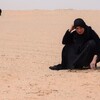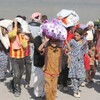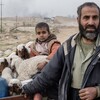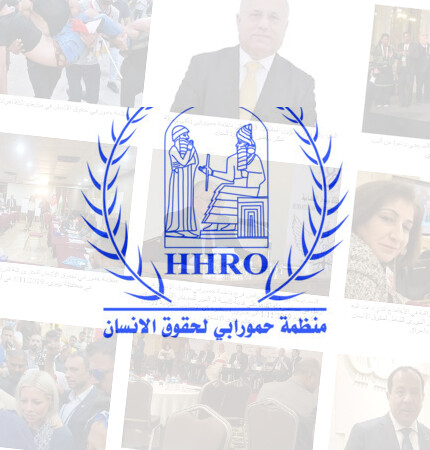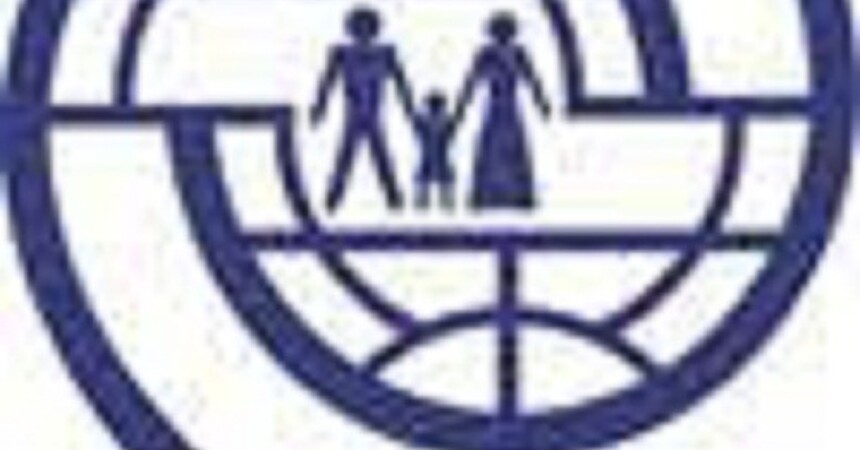
 Facebook
Facebook
 Twitter
Twitter
 YouTube
YouTube
 Telegram
Telegram
- الرئيسية
- تقارير وبحوث
- UN Migration Agency...
UN Migration Agency Provides Medical Care to Newly Displaced Persons from West Anbar
UN Migration Agency Provides Medical Care to Newly Displaced Persons from West Anbar
West Anbar – IOM, the UN Migration Agency, medical teams are providing assistance to nearly 1,000 primary health care beneficiaries, including displaced persons, returnees and host communities, per week in Anbar Governorate.
In anticipation of military operations, and due to recent military operations in remaining ISIL held areas, more than 7,100 individuals (over 1,150 households) have been displaced from west Anbar between the 12¬–31 October, mostly from the districts of al-Kai’m and Rau’a. Since January 2017, more than 64,950 individuals have been displaced by military operations in West Anbar. Of these, more than 19,000 have been displaced since 20 September following the intensification of the Iraqi Forces’ offensive against ISIL in the west Anbar districts of Ana, Al Ka’im and Ru’a.
IOM staff spoke with Noriah, a mother of seven children recently displaced from Al-Qaim, at an IOM mobile medical team clinic. “We have been displaced because of the very bad situation and the lack of food. Our lives used to be normal. After ISIL entered the city, my children stopped studying and our lives became very difficult. We got to a stage at which I could not always afford to feed my children,” said Noriah.
“We decided to move at night; we borrowed money from our relatives to pay the smugglers. We fled only in the clothes that we were wearing. We walked with other families who were also trying to get out of the city. Our journey lasted for three days via the Trabeal road and then to Kilo 160 until we reached the camp of Amiriyat Fallujah.”
IOM medical teams provide primary health care consultations, obstetric and gynecological consultations, and referral of emergency cases. The most common ailments reported include upper respiratory tract infections, diarrhea, leishmaniasis, scabies and chronic diseases, including hypertension and diabetes. Some trauma patients present injuries sustained during the conflict. IOM medical teams are also providing awareness rising sessions on prevention of communicable diseases and good health practices.
The locations for the mobile medical teams are determined according to the needs of the population and in coordination with Anbar’s Department of Health. Current locations include Amriyat Al-Falluja, Falluja, Heet, Kubbaissa, and two locations in Garma. These medical services are life saving for many newly displaced people who suffer from health conditions that were complicated by insufficient access to health assistance in ISIL-held areas.
In addition, IOM medical teams are running a tuberculosis response and prevention project in several governorates, funded by the Global Fund. In Anbar, this project provides support to the National Tuberculosis Program centers in Anbar; conducts screening for suspected cases and awareness sessions on tuberculosis symptoms and prevention; follow-ups on tuberculosis patients and provides them with transportation and high-protein foods; as well as training sessions for staff members of Anbar’s Department of Health.
IOM Iraq Displacement Tracking Matrix has been monitoring the West Anbar crisis since January 2017, when significant displacement movements were already taking place due to hostilities in the area and in anticipation of major military operations. Of the total displaced, 42,800 are registered in camps, and more than 22,150 are in out-of-camp locations (over 21,500 in private settings, and 570 in critical shelter arrangements, including unfinished buildings). The majority of the displaced from West Anbar are within Anbar Governorate; more than 28,400 have been displaced to the district of Falluja, and over 22,000 to Ramadi. Others have fled to Baghdad governorate (over 4,200) and Erbil governorate (4,400).

